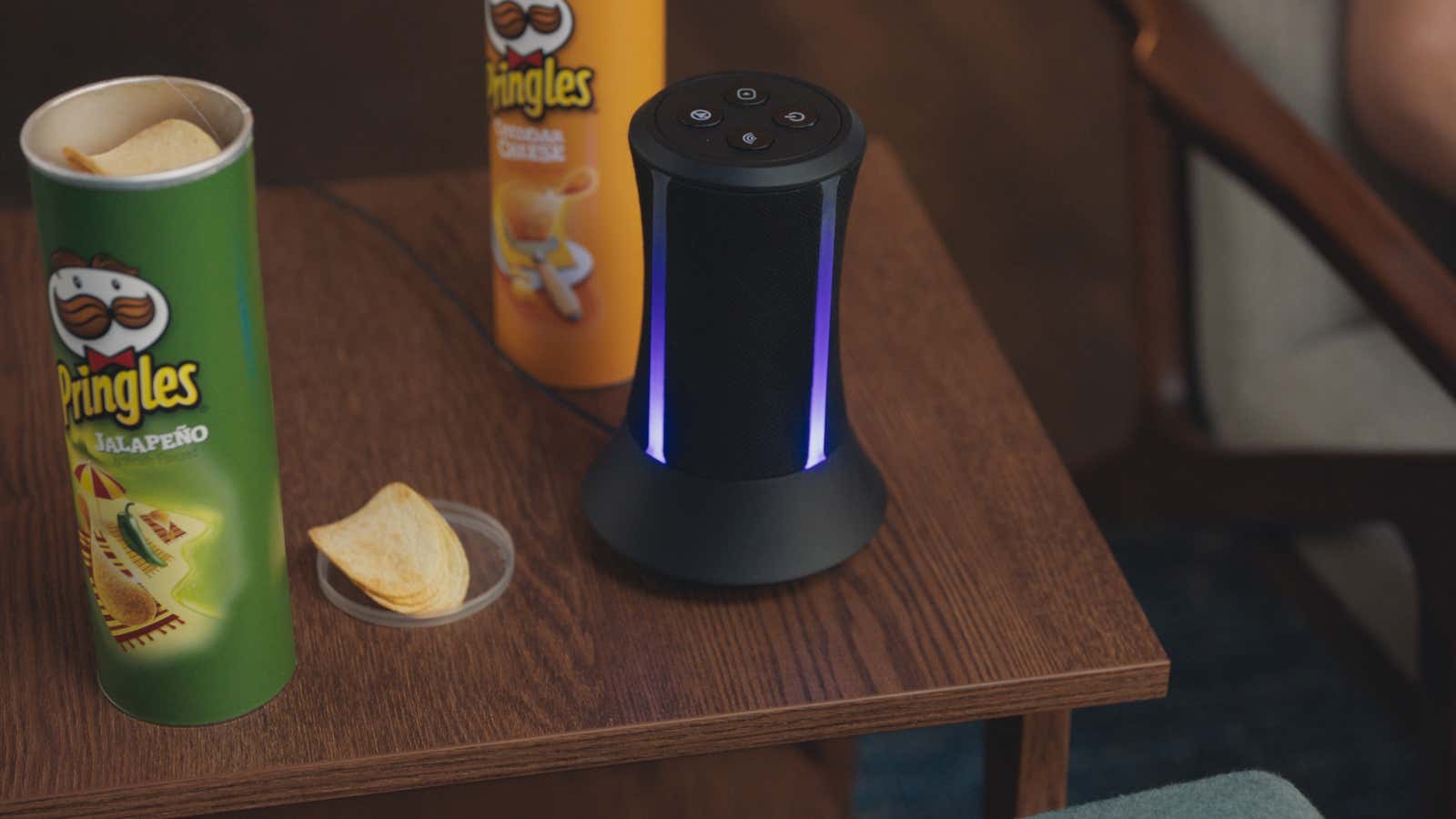Robots and artificial intelligence are everywhere in this year’s crop of Super Bowl commercials.
Amazon’s voice assistant is wreaking havoc in dog collars and hot tubs. Robots are designing Sprint’s Super Bowl pitch. And Mercedes-Benz is showing off the voice assistant in its luxury vehicles, to name a few.
But some of this year’s robots are also seriously bummed out. Michelob Ultra’s fitness-crazed robot looks on longingly at a group of friends enjoying a beer at the bar, something it can’t do because it lacks both friends and the ability to consume a beverage. The smart speaker in the commercial from Pringles is devoid of all joy. And the robot child in TurboTax’s teaser for its Super Bowl spot is having some kind of existential crisis over a kale salad it’s incapable of eating. “The world isn’t ready for you yet,” a human father tells the robot child in the ad.
None of these robots are nearly as dejected as the General Motors robot that dreamed of throwing itself off a bridge after a minor slip up on the assembly line, in the automaker’s 2007 Super Bowl ad. But the devices in 2019’s Super Bowl commercials do appear a bit unhinged.
“This is the year of the sad robot, absolutely,” Mark DiMassimo, chief of ad agency DiMassimo Goldstein, told Quartz.
Why are these robots so sad? It’s partly advertising’s way of acknowledging and dealing with some of the anxieties brands suspect people are having around artificial intelligence and technology right now, experts say.
“When Hitler was the scariest thing in the world, Charlie Chaplin came up with The Great Dictator,” DiMassimo said, referring to a 1940 film that made a caricature of dictator Adolf Hitler. “When dad was the scariest thing in the world, sitcoms came up with the goofy dad. Right now people have a mostly unconscious anxiety about AI and robots, and our jobs, and whether evolution is going to pass us by. We can reassure ourselves by bringing robots down a few pegs.”
These devices are all around us, all the time—even during the Super Bowl. Advertisers can’t ignore them. But they also don’t want to be associated with the nervousness they conjure up. Imparting human attributes on these devices in a way that also identifies their weaknesses can be both humorous and therapeutic.
“What the advertisers are trying to do is play off the robot theme but not do it in a scary way,” Tim Calkins, professor of marketing at the Kellogg School, said. “They’re careful not to talk about a super-smart robot that is taking over the world.”
SimpliSafe, a home-security company, is the exception. Its Super Bowl teaser depicts a chorus of fear-mongering neighbors discussing a potential prowler, which, in the final seconds of the ad, appears to be a robot similar to the Terminator. Presumably, the implication is that SimpliSafe can keep protect people from these dangers. It could work for the company, because it’s in the business of security.
But even tech giants like Amazon are steering clear of marketing their devices as too smart in the Super Bowl this year. Amazon’s commercial makes Alexa the butt of the joke by showcasing toothbrushes, dog collars, and other items that go hilariously awry when equipped with Amazon’s voice assistant. The ad’s message,”not everything makes the cut,” suggests that Amazon knows when it’s taking things too far. The ad is still pro-tech, but it has a little fun at Alexa’s expense, with help from stars like Harrison Ford and Forest Whitaker.
